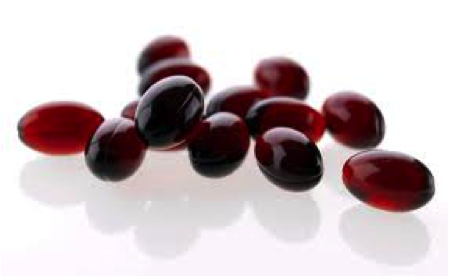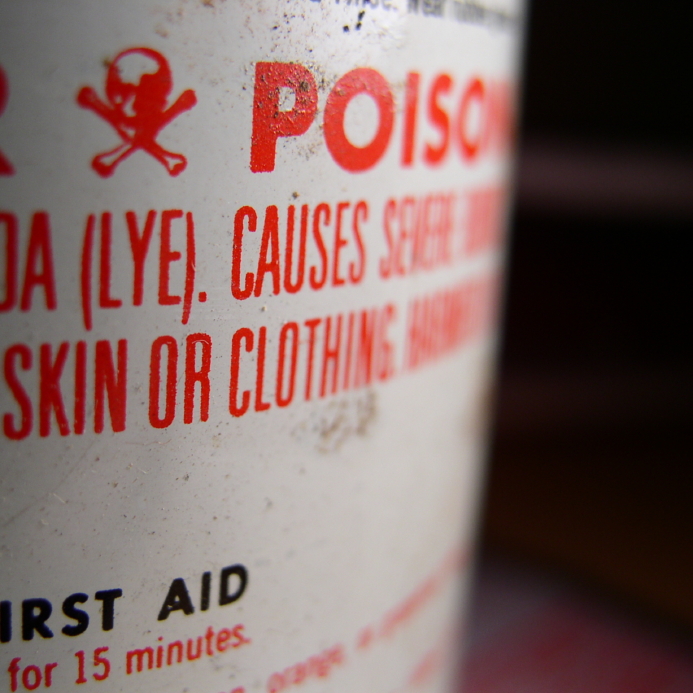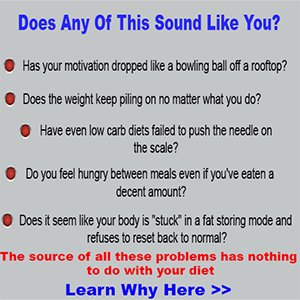[BREAKTHROUGH] The Special Nutrient That Opens Your Fat Cells and DUMPS Your Stored Fat
 New research published in the journal Nature, shows a potential breakthrough in the way your body handles different types of fat - especially omega-3 fatty acids.
New research published in the journal Nature, shows a potential breakthrough in the way your body handles different types of fat - especially omega-3 fatty acids.
What you eat, how much activity you get, and if you are including fruits, vegetables, and essential fats are all factors for helping you lose weight..
Now, however, researchers have shown that a receptor site located on your fat cells could play a key role in weight loss, fat accumulation (in your liver, arteries, and muscles), and specific characteristics reserved for people with diabetes.
Let me explain…
GRP120
GRP120 is a receptor site commonly found on the surface of your liver, fat, and muscle cells.
The function of the GRP120 receptor plays an important and functional role in the regulation of fat cells and your body’s ability to use unsaturated fatty acids - especially omega-3 fatty acids.
When unsaturated fatty acids bind to GRP120, they start a chain reaction, that research suggests, could lead to adipogenesis (the shift from adipocytes to adipose tissue), regulation of appetite, and your food choices.
The Research
Clinical research on mice deficient in the GRP120 gene that were fed a high-fat diet, showed increased obesity levels, glucose intolerance, and higher fat accumulation in the liver (fatty liver disease).
Also noted, these same mice showed a decrease in adipocyte differentiation, lipogenesis, and more hepatic (liver) lipogenesis.
 The mice were unable to make more fat cells (adipocyte differentiation), which could take on more fat from the food they ate. Instead, the fat was transferred to other areas of the body.
The mice were unable to make more fat cells (adipocyte differentiation), which could take on more fat from the food they ate. Instead, the fat was transferred to other areas of the body.
Lipogenesis, simply put, is the process of developing fat. This is how your body converts fat found in food particles and stores it as body fat.
The mice deficient in GRP120 showed a reduction in fat being stored as body fat, but showed increased storage of fat in the liver and other organs.
The researchers also noted that GRP120-deficient mice showed signs of insulin resistance.
This resulted in a decrease in insulin signaling and higher inflammation levels (chronic and not acute) found in their fat cells.
Research suggests that when your fat cells are unable to utilize and store fat, the fat is then transferred and stored in other areas of your body, like your liver, muscles, and the walls of your arteries.
However, they also noted many similarities in regards to human subjects.
In people, increased fat in the liver, muscles, and walls of your arteries in combination with increased insulin resistance, could increase your risk for developing diabetes and heart disease.
The researchers noted that overweight or obese subjects showed higher levels of GRP120.
However, they did see a mutation in the GRP120 gene in overweight or obese subjects, which inhibited the activation of the gene to bind to unsaturated fatty acids.
This could decrease the activation of GRP120, which could increase obesity levels and increase their risk for diabetes and heart disease.
They concluded that GRP120 plays a significant role on sensing dietary fat, therefore disrupting the control of energy balance in both animal and human studies.
GRP120 and Your Health
Western diets, for the most part, are characterized by refined white flour, white sugar, and trans fats.
This could increase your omega-6 to omega-3 ratio, which research suggests, has the ability to increase chronic inflammation levels.
Chronic inflammation could target your fat cells, potentially deactivating the GRP120 receptor located on your fat, liver, or, muscle cells.
The GRP120 receptor is activated in the presence of omega-3 fatty acids, and when activated, has the potential to reduce chronic inflammation, create new fat cells, utilize more fat for energy, reduce inflammation, and lower fat stored in other organs like the liver and arteries.
This could stimulate weight loss and, as research suggests, lower your risk for heart disease and diabetes.

30-Seconds To A Sharper Memory And Laser Focus (here's how)

Is This The HEALHIEST Oil For Deep-Frying?

Eliminate The 91 Industrial Chemicals Making You Fat?
References:
Ichimura, A. Hirasawa, A. Poulain-Godefroy, O. Bonnefond, A. Hara, T. Yengo, L. Kimura, I. Leloire, A. Liu, N. Lida, K. Choquet, H. Besnard, P. Lecoeur, C. Vivequin, S. Ayukawa, K. takeuchi, M. Ozawa, K. Tauber, M. Maffeis, C. Morandi, A. Buzzetti, R. Elliot, P. Pouta, A. Jarvelin, MR. Korner, A. Kiess, W. Pigeyre, M. Caiazzo, R. Hul, WV. Gaal, LV. Horber, F. Balkau, B. Levy-Marchal, C. Rouskas, K. Kouvatsi, A. Hebebrand, J. Hinney, A. Scherag, A. Pattou, F. Meyre, D. Koshimizu, T. Wolowczuk, I. Tsujimoto, G. Froguel, P. Dysfunction of lipid sensor GPR120 leads to obesity in both mouse and human. Nature. 2012. doi: 10.1038/nature10798.
About Jayson Hunter & Jaylab Pro

Jaylab Pro was founded by Registered Dietitian Jayson Hunter. Jayson has been recognized as one of America's foremost weight loss experts by America's Premier Experts™. He has also been featured in USA Today for this accomplishment. Jayson is also a best-selling author having co-authored multiple books in health & fitness and business growth. Jayson and the Jaylab Pro team are proud to create content that helps improve the lives of millions of people around the world. We hope you enjoy it just as much as others have.
 If you order a JayLabPro SmartShip product or any Combo Package, we will automatically ship you a new supply of the product or products you have ordered every month, starting 30 days after your initial order is shipped, and continuing until you cancel. The credit card you are using today will be billed the lowest available price for those product or products when your order is shipped, but shipping will be FREE. You may log into your customer account or call our customer service department toll-free at 1-888-9GETPRO (1-888-943-8776) between the hours of 8am – 9pm EST Mon-Fri to cancel future shipments, customize the timing of your shipments, or change the credit card used for billing.
If you order a JayLabPro SmartShip product or any Combo Package, we will automatically ship you a new supply of the product or products you have ordered every month, starting 30 days after your initial order is shipped, and continuing until you cancel. The credit card you are using today will be billed the lowest available price for those product or products when your order is shipped, but shipping will be FREE. You may log into your customer account or call our customer service department toll-free at 1-888-9GETPRO (1-888-943-8776) between the hours of 8am – 9pm EST Mon-Fri to cancel future shipments, customize the timing of your shipments, or change the credit card used for billing.










